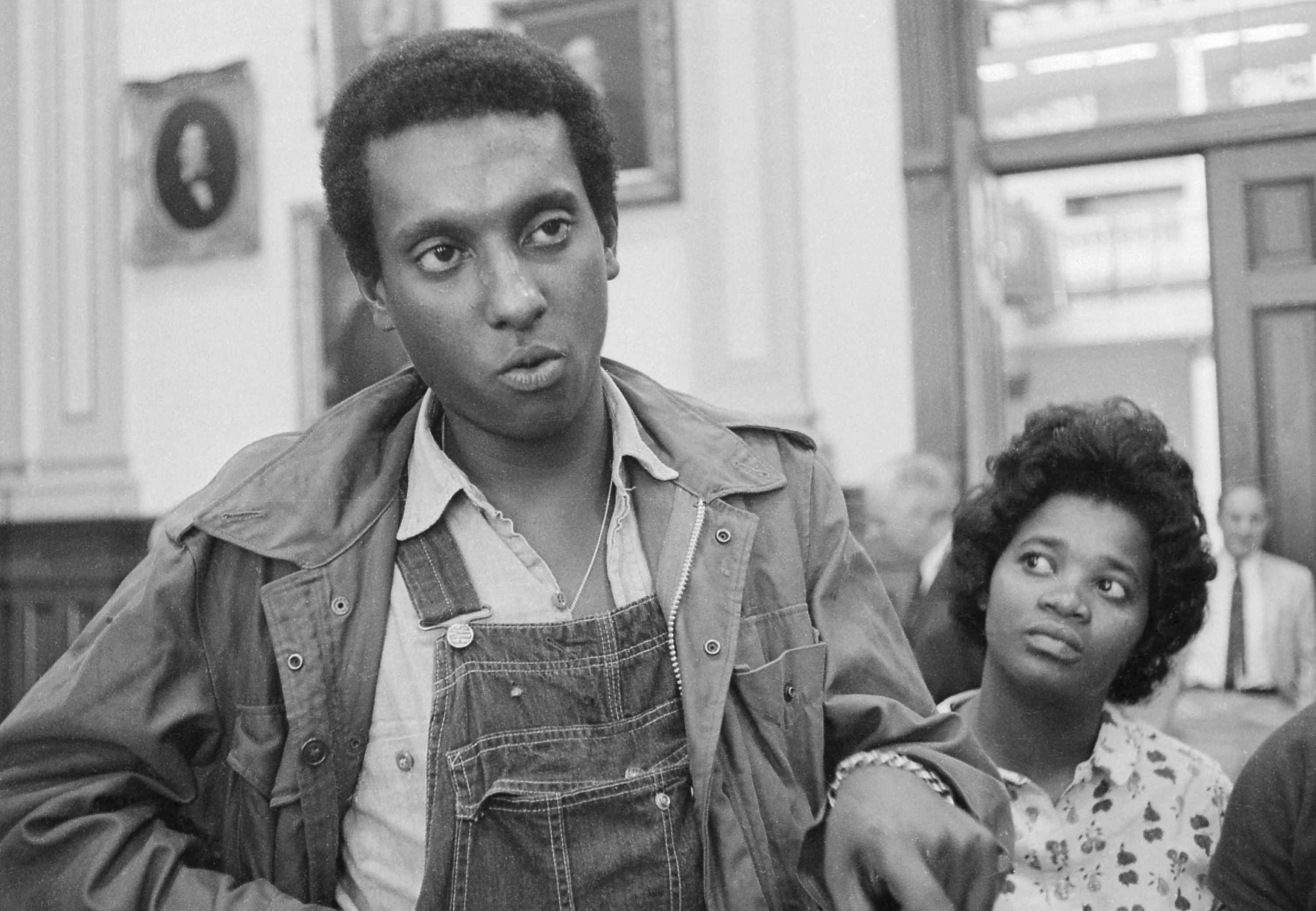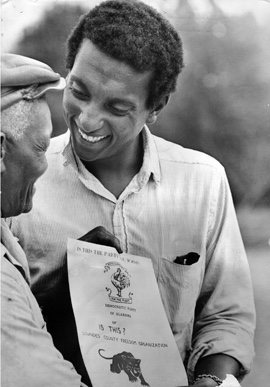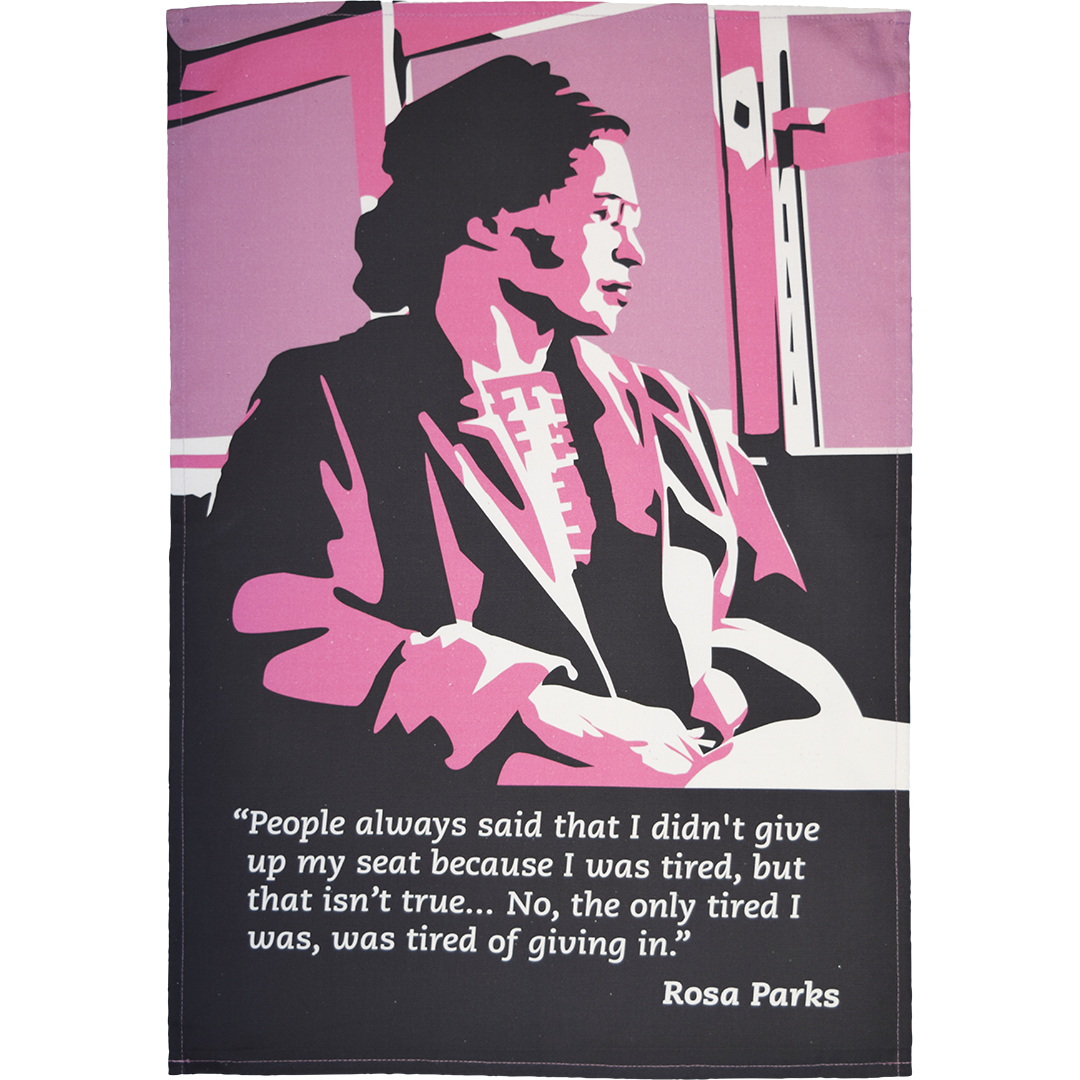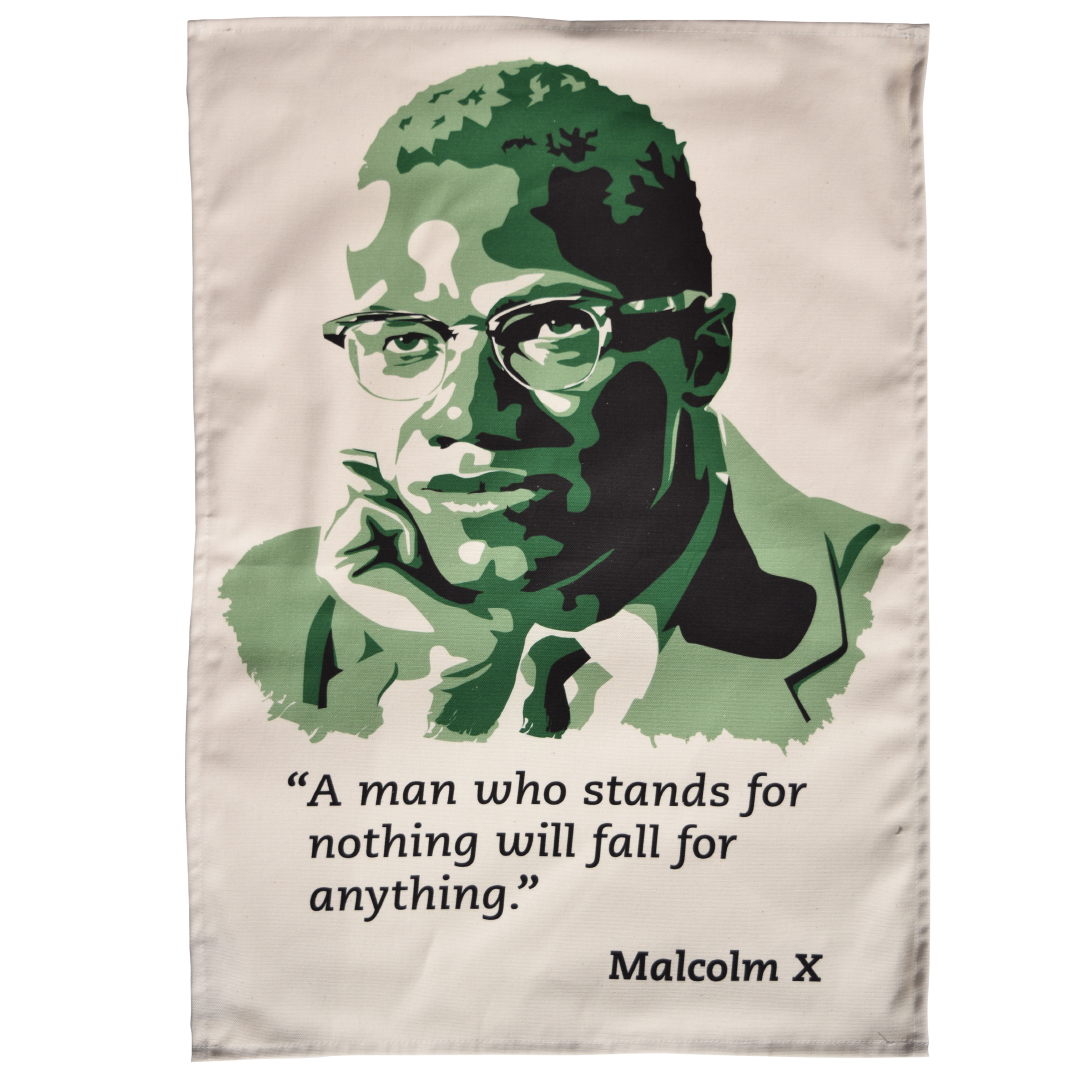Ready for the Revolution: Kwame Ture and the Black Freedom Struggle
Posted by Pete on Jun 29th 2021

Thrown in prison over thirty times, Kwame Ture never gave up the fight against racism and injustice...
Many of the greatest figures in US radical history have come out of the black freedom struggle.
Think of
Harriet Tubman and Frederick Douglass, fighting for abolition in the 19th century. Or Ida B. Wells and W.E.B. Du Bois, both founding members of the NAACP, bringing the movement into the twentieth century.
But the post-WW2 era of Civil Rights and Black Power was one of the most radical of all. This was the chapter of
Rosa Parks, Malcolm X, and Martin Luther King. Of Fannie Lou Hamer, James Baldwin, and Angela Davis.
Consistently on the radical and internationalist wing of this movement was Kwame Ture (known until 1978 as Stokely Carmichael), born on this day in 1941.
Known as the 'mother of the freedom movement', Rosa Parks's bus protest catalysed some of the major campaigns of the late 1950s.
Click to view our Rosa Parks tea towel
Born on the Caribbean Island of Trinidad – an island with its own radical tradition – Kwame moved to New York as a kid.
He had a formidable intellect, getting into the Bronx High School of Science and later studying philosophy at Howard University. He remained a movement intellectual the rest of his life.
It was at Howard where Kwame first got involved in the black freedom struggle.
He went South with the Freedom Riders in 1961, challenging segregation on interstate buses and at bus station restaurants.
“I thought I have to go because you’ve got to keep the issue alive, and you’ve got to show the Southerners that you’re not gonna be scared off.”
Charged with disturbing the peace for entering a white cafeteria in Mississippi, Kwame was thrown in prison for 49 days – the first of literally countless spells in jail for his activism.

Kwame in Alabama in 1966, holding a Black Panther flyer.
From these beginnings, Kwame quickly rose to prominence on the Student Nonviolent Coordinating Committee (SNCC), succeeding future congressman, John Lewis, as national chair in 1966.
Kwame fought for the classic issues of the civil rights movement in the 1960s, from desegregation to black suffrage. But he was never comfortable with the moderate mainstream of the movement, rejecting
Dr King's belief that non-violent resistance should be a principle rather than just a tactic.
During the Selma to Montgomery voting rights marches, Kwame was traumatized by the sight of Alabama police viciously assaulting unarmed protestors.
As for many others in the black freedom struggle, such discontent led Kwame towards more radical Black Power politics – he formally split from SNCC in 1968 and became a leader of the Black Panther Party.
That being said, and for all their differences, Kwame was a lifelong collaborator with Dr King, proving influential to MLK’s decision to denounce the US invasion of Vietnam in 1968.
Like many black activists before and after him, Kwame’s formidable combination of intelligence, charisma, and radical conviction made him a target for the FBI.
Malcolm X was one of Ture's most significant influences, inspiring his radicalism and his internationalist philosophy.
Click to view our Malcolm X tea towel
The ever-fascistic J. Edgar Hoover identified Ture as a probable successor to Malcolm X – a “black messiah” – who had himself been assassinated in 1965.
COINTELPRO (a Cold War-era FBI program of domestic repression – an American Stasi if you will) set to work, planting false leads that Ture was a CIA agent to isolate him from the Black Panthers and generally seeking to ruin him.
Wisely fearing for his life, Kwame went into exile in 1969. But this wasn’t the end of his political career. Far from it.
Based in the Republic of Guinea, he became a global missionary for socialist Pan-Africanism and anticolonial struggle. It was during this period that Ture began answering phone calls with the greeting: “Ready for the revolution!”
It was also during this period, in 1978, that he changed his name from Stokely Carmichael to Kwame Ture, in tribute to the African revolutionary leaders, Kwame Nkrumah and Ahmed Sékou Touré.
Despite his long exile, Kwame Ture was never forgotten in the US, frequently drawing massive crowds as he came back on speaking tours.
On his death in 1998, it was the Reverend Jesse Jackson who reflected,
“He was one of our generation who was determined to give his life to transforming America and Africa. He was committed to ending racial apartheid in our country. He helped to bring those walls down.”


